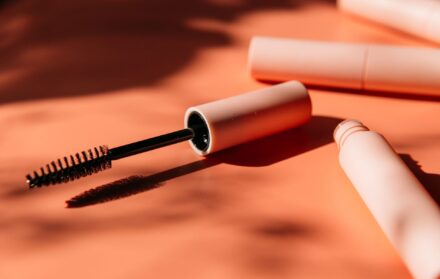
Dry January: Does giving up alcohol for a month actually make a difference?
Is a month off the sauce really beneficial for your body? We ask the experts whether sticking to Dry January is really worth it in the long run
It’s estimated that more than nine million people across the UK will be ditching the booze in the spirit (ahem) of Dry January this year – with the movement having grown exponentially since it began in 2013. And while we’re vaguely aware of the endless positives of abstaining from alcohol – better sleep, improved mental health and positive attitudinal changes to drinking habits – is Dry January actually beneficial for our body, or is it just another fad? We get the lowdown.
What impact does alcohol have on the body?
It’s important to state that, while it is enjoyed responsibly and in moderation by most, consumption of alcohol doesn’t have to be excessive before it becomes a problem. Recent data from the Office of National Statistics (ONS) showed that almost 10,000 people in the UK die each year from alcohol-related causes, a figure which has risen year on year since 2019.
Repetitive boozy nights – which leave you with a fuzzy head and a bout of nausea the next morning – or even regular consumption of a few glasses of wine here and there all have an impact on your gut, liver and pancreas. “When we think about alcohol, [the first health issue] we think about is liver disease,” explains Dr Adam Staten, GP and clinical director at One Day Tests, which offers walk-in clinics in Canary Wharf and Borough, home-testing kits and next-day expert advice. “Excessive alcohol consumption can end up causing fat deposits in the liver, inflammation and scarring. But we also know it can contribute to high cholesterol, negatively impacting the pancreas, and can minimise the ability to heal broken bones.”
“The liver is a forgiving organ and is able to regenerate itself, so you can get substantial recovery and reduction of fatty deposits in a short period of time”
Dr Adam Staten
“In terms of the gut, the most common issue caused by alcohol is inflammation of the stomach which can present itself as pain or heartburn. The gastrointestinal tract can also become inflamed leading to chronic diarrhoea problems. Recently, there’s been a lot of interest in the gut microbiome and that bacteria can be badly damaged by alcohol, however, we don’t fully know what the implications of that are at the moment.”
Alcohol, known scientifically as ethanol, is classed as a depressant drug and is active in fermented drinks such as beer, wine, and distilled spirits. It’s during this process of fermentation that additional sulphites (cue the headache) and calories are added too. “Beer and wine, for example, are hugely calorific, often contributing to obesity and diabetes,” adds Staten.
Is drinking alcohol good for you?
If you hadn’t already guessed, the answer is no. “Historically, there’s been this notion that some alcohol – such as red wine – is good for you, however, there’s not actually any evidence for that,” says Staten. “There are areas of the world called Blue Zones, such as the Mediterranean, where the population have a very long life expectancy and they often drink wine regularly. But it doesn’t mean that’s the result of the alcohol, as it could be other lifestyle factors too.”

What benefits will a month-long break from alcohol have on the body?
“There are quite a lot of benefits to giving up alcohol for a month. The liver is a forgiving organ and is able to regenerate itself, so you can get substantial recovery and reduction of fatty deposits in a short period of time,” says Staten. “Also, due to the high calorie content in drinks, people often lose weight in January. Other benefits include a brighter mood and better sleep quality.”
It’s the latter that Dr Lindsay Browning – a psychologist, neuroscientist and sleep expert at Chelsea-based bed brand And So To Bed – has researched extensively. "Alcohol is a sedative and can make it easier to fall asleep (or rather pass out). However, alcohol does disrupt the quality of your sleep. Firstly, [it’s] a diuretic meaning that you may wake up more frequently during the night to need the toilet, plus, it can make you more likely to sweat, increasing dehydration and making staying asleep comfortably more difficult.
"If you have been used to drinking alcohol before going to sleep, then you may find it harder to fall asleep initially without the sedative effect. In fact, temporary insomnia is a common side-effect of alcohol withdrawal, but once you get used to falling asleep without needing the sedative, you should get better quality sleep. A 2018 study published in the Psychology and Health journal found that 70 per cent of people who took part in Dry January reported better sleep when they were abstaining from alcohol."
So, is Dry January worth it?
Other benefits of Dry January include attitudinal change. Pub culture and endless pints on a Friday were once so ingrained in working and social patterns in the UK that refusing a drink was deemed odd. However, in 2024, attitudes towards drinking have improved and Dry January – when it’s suddenly socially acceptable to meet friends without consuming alcohol – provides a prime opportunity for many to reevaluate their relationship with the drug.
“In my experience, people tend not to think honestly about their relationship with alcohol until it’s actually problematic,” says Dee Johnson, psychotherapist and senior addiction therapist at Priory Hospital, Chelmsford. “I always encourage this break in drinking habits as a welcome opportunity to take stock with a clear head. Think of Dry January as something of a collective, self-exploratory project.
“You may not have been aware just how much you were using alcohol as a form of self-medication. It’s a slow progressive path into disordered drinking and addiction and it’s surprisingly common not to have noticed how your consumption has crept up, as you become more and more physically and psychologically tolerant. And there’s no denying that alcohol can anaesthetise emotions and temporarily mask many issues and underlying problems.”
Read more: Dr Frankie Jackson-Spence on why you shouldn’t overhaul your wellness routine in January






